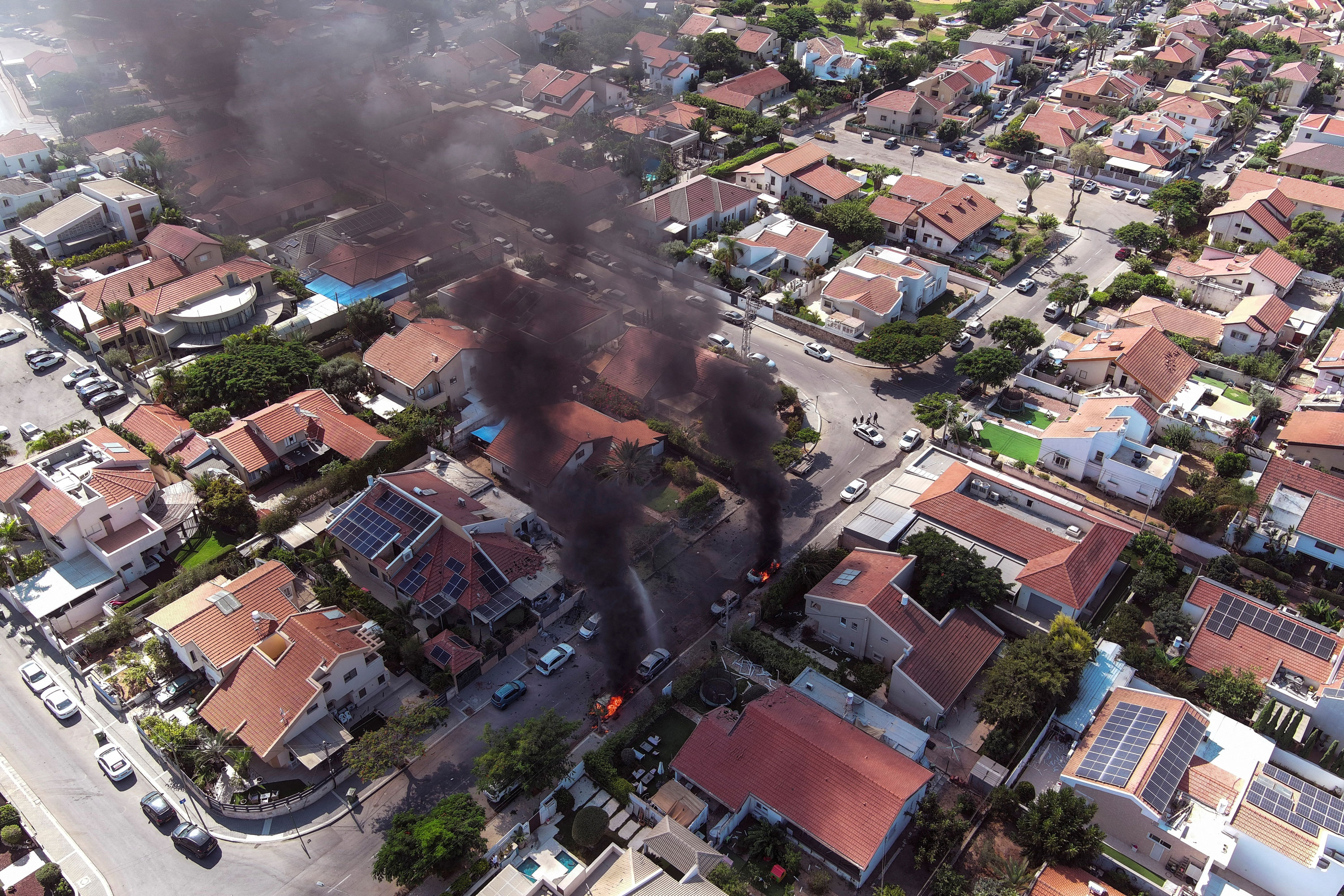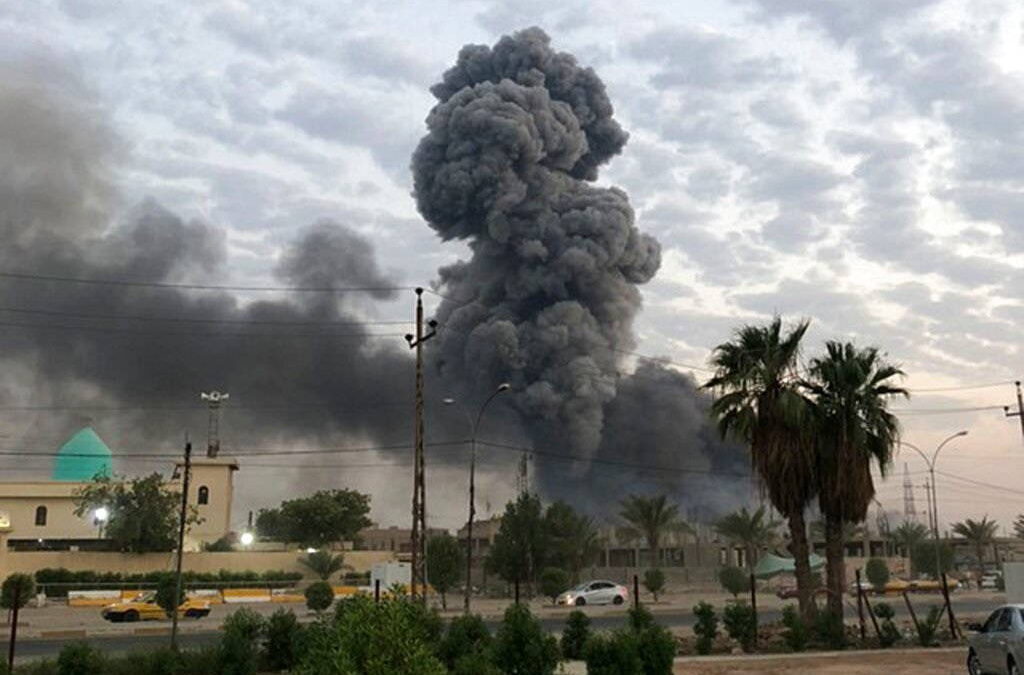Historical Context of Iran-Israel Tensions: Iran Attack Israel Israeli

The relationship between Iran and Israel has been characterized by deep mistrust and hostility for decades, rooted in a complex interplay of historical events, ideological differences, and geopolitical interests. This complex dynamic has manifested in various forms, including political pronouncements, military actions, and proxy conflicts, shaping the broader Middle Eastern landscape.
The 1979 Iranian Revolution and its Impact on Iran-Israel Relations
The 1979 Iranian Revolution, which saw the overthrow of the Shah’s regime and the establishment of an Islamic Republic under Ayatollah Khomeini, marked a significant turning point in Iran-Israel relations. The revolution ushered in a period of heightened anti-Western sentiment, including a strong anti-Israel stance.
– The revolution’s ideology, rooted in Shi’a Islam, positioned Israel as a major enemy, viewing it as an illegitimate entity created by Western powers to undermine the interests of the Muslim world.
– The revolution also saw the establishment of the Islamic Revolutionary Guard Corps (IRGC), a powerful military force dedicated to protecting the Islamic Republic and promoting its ideology, including its opposition to Israel.
– Following the revolution, Iran became a vocal supporter of Palestinian groups, providing them with financial and military support, further escalating tensions with Israel.
Past Military Actions and Confrontations
The historical animosity between Iran and Israel has manifested in various military actions and confrontations, primarily through proxy conflicts and covert operations.
– The Iran-Iraq War (1980-1988): Although not directly involving Israel, this war significantly impacted Iran-Israel relations. Israel, fearing an Iranian victory, provided Iraq with intelligence and weaponry, further fueling Iranian resentment.
– The Lebanon War (1982): Israel’s invasion of Lebanon in 1982, aimed at expelling the Palestine Liberation Organization (PLO), led to the establishment of Hezbollah, a Shi’a militia backed by Iran, which has since become a major force in Lebanon and a key player in the Iran-Israel conflict.
– The 1990s and 2000s: Throughout the 1990s and 2000s, Iran and Israel engaged in a series of covert operations and proxy conflicts. These included the assassination of Iranian scientists involved in Iran’s nuclear program, Israeli airstrikes targeting Iranian military facilities in Syria, and the alleged involvement of both sides in the Syrian Civil War.
– The 2010s: The 2010s witnessed a further escalation of tensions, with Israel launching airstrikes on Iranian targets in Syria, targeting Iranian-backed forces and weapons shipments. Iran responded by threatening retaliation and supporting anti-Israel groups in the region.
Nuclear Program and Regional Security

Iran’s nuclear program has been a source of significant tension and concern in the Middle East and beyond. The program’s implications for regional security are multifaceted and have fueled a complex geopolitical landscape.
Iran’s Nuclear Program
Iran’s nuclear program dates back to the 1950s, with the goal of generating electricity. However, concerns about Iran’s nuclear ambitions intensified in the late 1990s and early 2000s, as intelligence agencies and international organizations began to suspect that Iran was developing nuclear weapons. In 2003, the International Atomic Energy Agency (IAEA) confirmed that Iran had been engaging in clandestine nuclear activities. This discovery led to a series of UN Security Council resolutions demanding that Iran halt its nuclear program.
Iran and Israel’s Perspectives
Iran has consistently maintained that its nuclear program is solely for peaceful purposes, focusing on electricity generation and medical research. However, Israel and many Western countries remain skeptical of these claims, believing that Iran is pursuing nuclear weapons. This suspicion stems from Iran’s past efforts to develop nuclear weapons, its support for militant groups in the region, and its anti-Israel rhetoric.
Potential Consequences of Iran Developing Nuclear Weapons
The potential consequences of Iran developing nuclear weapons are significant and far-reaching. A nuclear-armed Iran would have a profound impact on the regional security landscape, potentially leading to:
- Increased regional instability: A nuclear-armed Iran could embolden its allies and adversaries, leading to an escalation of regional tensions and a potential arms race. This could result in an increased risk of conflict, potentially involving the use of nuclear weapons.
- Heightened threat to Israel: Israel has consistently stated that it will not tolerate a nuclear-armed Iran and has threatened to take military action if necessary. This could lead to a direct conflict between Iran and Israel, with potentially devastating consequences.
- Wider geopolitical implications: The emergence of a nuclear-armed Iran could have implications for the global nuclear non-proliferation regime, potentially encouraging other countries to pursue nuclear weapons. This could further destabilize the international security environment.
Proxy Conflicts and Regional Influence

Iran and Israel have engaged in a complex and multifaceted struggle for regional dominance, often employing proxy forces to achieve their objectives. This strategy allows both countries to maintain plausible deniability while exerting influence in strategically important areas. The use of proxies has shaped the regional landscape, contributing to instability and conflict.
The Role of Hezbollah and Hamas, Iran attack israel israeli
Hezbollah and Hamas, two prominent militant groups, serve as key proxies for Iran and Israel, respectively. Hezbollah, based in Lebanon, has strong ties to Iran and receives significant financial, military, and political support. Hamas, operating in the Gaza Strip, has a more complex relationship with Israel, receiving some support from Iran but also engaging in direct conflict with the Israeli state.
- Hezbollah: Hezbollah’s role as a proxy for Iran extends beyond military operations. The group has a significant presence in Lebanese politics, serving as a powerful political force. Iran utilizes Hezbollah to project its influence in Lebanon and the broader Middle East.
- Hamas: Hamas, while receiving support from Iran, has engaged in both armed conflict and political negotiations with Israel. Its focus on the Palestinian cause has created a complex dynamic, where it operates both as a proxy for Iran and as a representative of Palestinian interests.
Timeline of Key Events and Incidents
The history of proxy conflicts between Iran and Israel is marked by a series of events and incidents that have shaped the regional landscape.
- 1982: Israel invades Lebanon, aiming to weaken the Palestine Liberation Organization (PLO). The invasion also leads to the emergence of Hezbollah as a significant force in Lebanon.
- 1985: Hezbollah carries out a suicide bombing against U.S. Marines in Beirut, marking the beginning of a long-standing campaign against Western interests in the region.
- 2006: The Second Lebanon War erupts between Israel and Hezbollah, resulting in a month-long conflict that further escalates tensions between Iran and Israel.
- 2012: The Syrian Civil War begins, creating an opportunity for both Iran and Israel to increase their influence in the region. Iran supports the Syrian government, while Israel provides support to Syrian rebel groups.
- 2014: The Gaza War breaks out between Israel and Hamas, highlighting the continued conflict between the two sides and the role of Hamas as a proxy for Iran.
- 2018: The U.S. withdraws from the Joint Comprehensive Plan of Action (JCPOA), a nuclear deal between Iran and world powers, leading to increased tensions between Iran and Israel.
- 2020: Israel conducts a series of airstrikes against Iranian-backed targets in Syria, demonstrating its commitment to preventing Iran from establishing a permanent military presence in the country.
Iran attack israel israeli – Yo, it’s super wild what’s going down with Iran and Israel right now, right? I mean, like, who knows what’s gonna happen next? But hey, at least we’ve got something to look forward to, like the 2025 social security cola increase.
Maybe that’ll help us all chill out a little, you know? Hopefully, it’s enough to keep everyone from going totally bonkers over the whole Iran-Israel situation.
It’s super messed up, right? Iran and Israel are always at each other’s throats. It’s like they’re stuck in this endless loop of tension and conflict. You can check out israel iran to get the whole lowdown.
But it’s basically a long, complicated history of beef. So, yeah, the whole Iran attacking Israel thing is a huge deal, and it’s hard to see how it’s gonna end.
